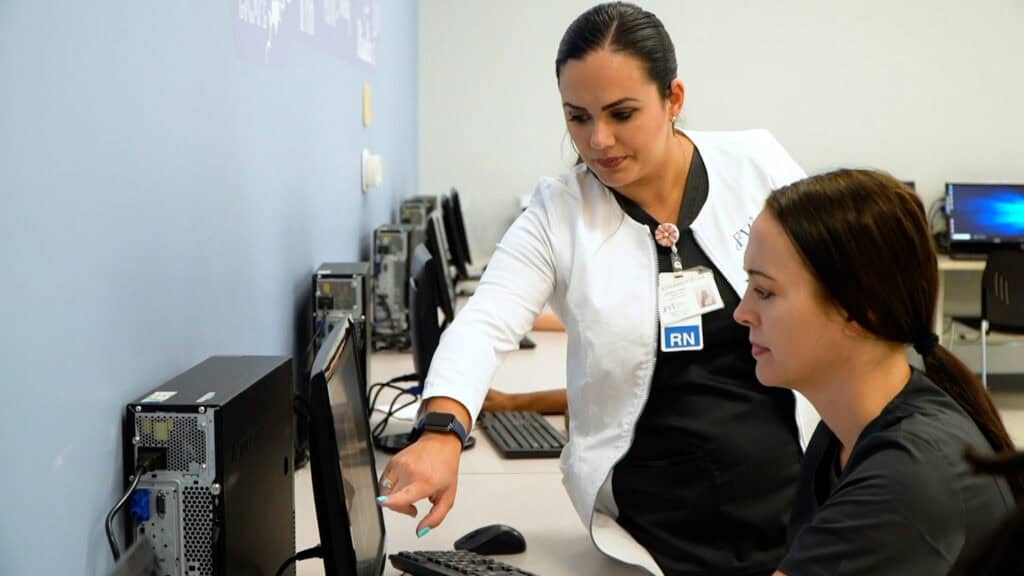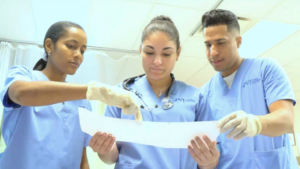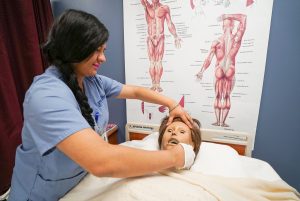
Table of Contents
People join the medical field for many different reasons, but one of these reasons is to help people and save lives. When you work as a telemetry technician, you are doing vital and important work. Learn more about what this type of job involved below and why it might be a good option for you.
What is a Telemetry Technician?
Telemetry technicians are also known as monitoring technicians or electrocardiograph technicians. These people are trained to do specific heart tests and recognize different heart rhythms. A telemetry is an electronic system that measures the electrical systems in the heart, which makes a telemetry technician the person that monitors the patient and the telemetry machine. As a telemetry technician, you need to know how to identify normal and unusual heart patterns like arrhythmias and abnormalities. This monitoring will help doctors and nurses better understand how to treat the patient.
The position of the telemetry technician does not make treatment decisions, but they are part of the process because they help identify abnormalities. After identifying an abnormality, they will report it to a doctor or nurse. The doctor will then come up with a treatment plan for the patient depending on their specific issue or problem. That means the telemetry technician is a very vital part of the process of identifying and treating a specific heart problem or condition.
Becoming a telemetry technician can be a great option for someone who is interested in the medical field and specifically the cardiac area. Working a job like a doctor or a surgeon requires a lot of education, but becoming a telemetry technician only requires a little bit of education. This means it is easy to get your training and get started with work right away. You can take a telemetry technician certification after completing our patient care technician program in Florida. At FVI gain the knowledge and experience you need to succeed in this field. Learn more about the required education below.
What Education Do You Need?
To become a telemetry technician, you take a cardiac monitor or telemetry technician course. This course teaches you about all the duties related to cardiac monitoring. This type of course or training program can last anywhere from two months to a year. This program will teach you about the cardiovascular system, patient care techniques, the EKG system, cardiovascular drugs, and so much more. After completing a program like this, you will be able to set up telemetry monitoring, interpret the results, and report any abnormal activity to a nurse or doctor.
After you complete your education, you can become certified. Certification is not required for many telemetry technicians, but it can be something that looks good on a resume and makes an employer more likely to hire you for the position. One example of available certification for this type of work would be through an organization called CCI or Cardiovascular Credentialing International. You can also further your education by specializing and get certified in cardiovascular specialties.
Saving Lives as a Telemetry Technician
If you are someone who wants to work in the medical field and help in the process of saving lives, working as a telemetry technician could be a great option for you. Telemetry technicians help cardiac patients monitor heart rhythms, and they can help prevent unnecessary cardiac occurrences, which can save lives.
These days there is a high volume of patients going to hospitals and doctor’s offices. This high volume of patients means that doctors and physicians rely on expert medical technicians like telemetry technicians. If you can be knowledgeable and an expert in your field, you can assist with the many people that need your expertise.
Also, according to the Bureau of Labor Statistics, working as a cardiovascular technician can provide you with a good income. The BLS website says that the average median wage of those working as cardiovascular technicians was $55,270 as of May 2017.
FVI or FVI School of Nursing and Technology can help you get the skills and knowledge you need to succeed as a telemetry technician. We have a telemetry technician course in our patient care tech school in Miami that can help you learn about the cardiovascular system in general as well as the different testing you will be doing. You will also learn how to recognize normal and abnormal telemetry monitoring results so that you can report your findings to doctors and nurses. Contact us to learn more about our program or explore all of our allied healthcare training programs in Florida.
For more information about graduation rates, the median debt of students who completed the program, and other important information, please visit our website:
https://fvi.edu/consumer-information/.









